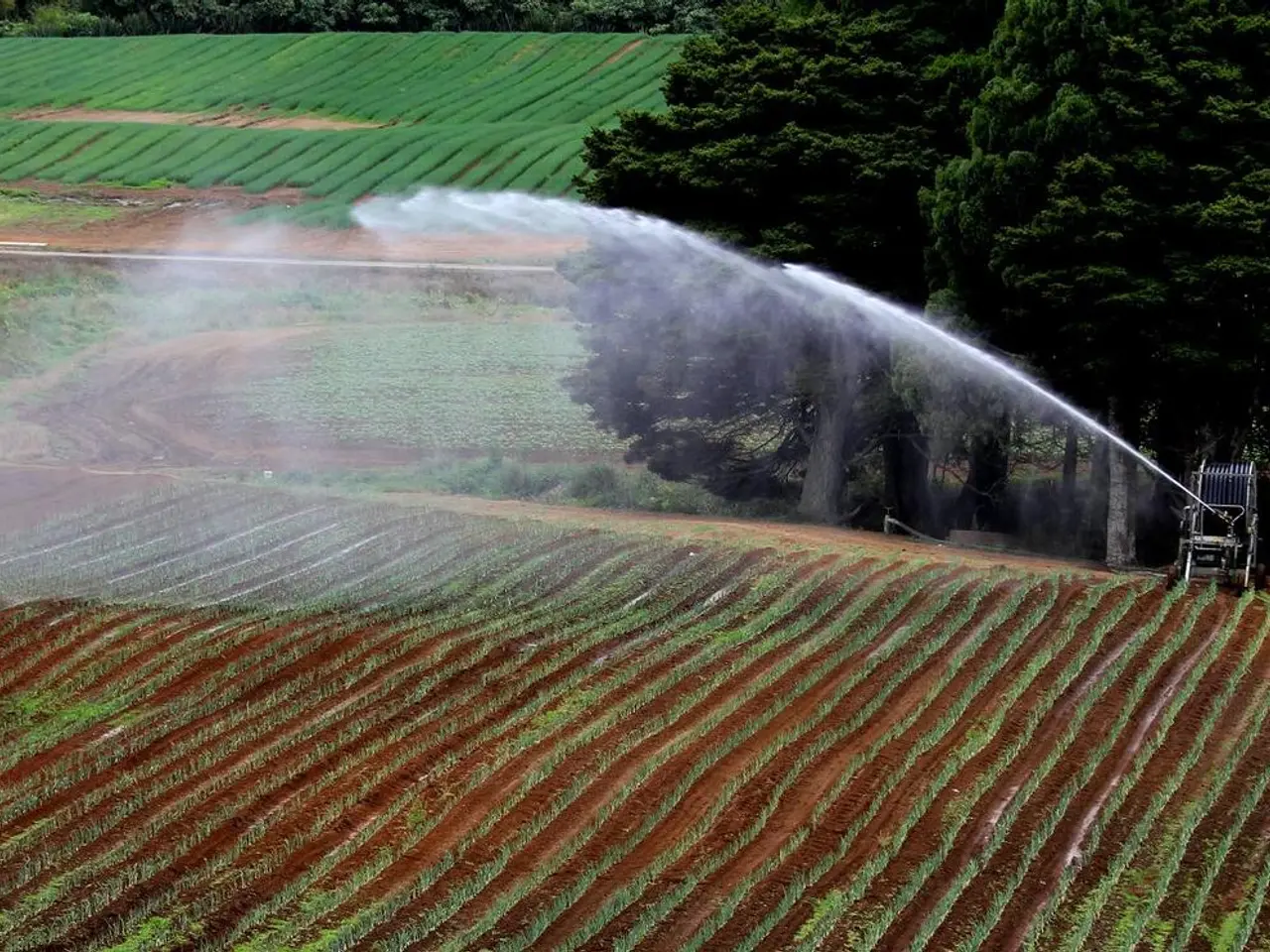Singapore's food security target for reaching self-sufficiency by 2030 is under revision, as confirmed by the government
In a series of announcements, the Singaporean government has unveiled a range of initiatives aimed at addressing coastal protection, food security, and climate change adaptation.
Coastal Protection
Two site-specific studies on Sentosa Island and the nation's south-west coast for coastal protection from rising seas will commence by 2026. These studies are part of a broader coastal protection plan, which will be funded from the government's annual budget and a coastal and flood protection fund that will receive a S$5 billion top-up. Where eligible, such as for land reclamation, past reserves will also be utilised.
A coastal protection bill is expected to be introduced in the second half of 2025, following consultations with relevant stakeholders.
Food Security
Singapore's food self-production remains below 10%, and the government has acknowledged the need to address productivity, cost, and demand challenges. In response, the government has announced a review of its goal to produce 30% of its nutritional needs locally by 2030.
The Singapore Food Agency (SFA) is responsible for the ongoing development of the "30 by 30" initiative following the latest review. Last year, the government introduced a S$60 million Agri-Cluster Transformation (ACT) fund to help farmers adopt productivity-enhancing technologies. As of end-2024, the ACT fund has supported 43 companies, including indoor fish farm Blue Ocean Aquaculture Technology and vegetable farm Yili Farm.
Senior Minister of State for Sustainability and the Environment Koh Poh Koon confirmed the review, stating that the "30 by 30" vision, first announced in 2019, is "aspirational." Koh also mentioned that high-profile farms, including government grant recipients, have closed.
Opposition Workers' Party member Dennis Tan suggested supplementing high-tech solutions with low-tech sustainable farming practices, such as permaculture. However, Koh characterised permaculture as potentially less suitable for local production in Singapore due to its requirement for extensive land space. Permaculture could, however, be a valuable low-tech complement for Singapore's fish farms, according to Tan.
Climate Change Adaptation
Plans to study solutions to capture carbon emissions at waste-to-energy plants are underway, with a pilot project to be launched by 2026 to validate such carbon capture technologies. A S$25 million (US$18.6 million) weather science research programme is being planned to enhance Singapore's ability to understand and predict tropical urban weather, including extreme weather arising from climate change.
A special report titled "Sowing the Impossible?" was published by our website in 2024, questioning if it's time for Singapore to review its "30 by 30" food production goal. The report highlighted that certain food types, such as hen eggs and bean sprouts, now contribute to 30% and 50% of local consumption respectively.
In the realm of agriculture, Koh shared that since the launch of a collective model by the Singapore Agro-Food Enterprises Federation (SAFEF) last May, sales of locally-grown xiao bai cai and processed local fish products have increased significantly at Singapore's largest supermarket chain Fairprice. SAFEF's collectively grown vegetables will also be available at competing supermarket operator Sheng Siong starting this month.
Other climate-related plans unveiled at the Committee of Supply 2025 debates were not detailed in the provided paragraphs. The government will share more details about the review after it is completed, though no specific timeline was given.
A S$300 million (US$223.7 million) energy efficiency fund for public sector buildings will be disbursed over the next five years. This fund aims to reduce energy consumption and greenhouse gas emissions in public buildings.
These initiatives underscore Singapore's commitment to addressing pressing environmental and food security challenges, while also promoting sustainable development and resilience in the face of climate change.
Read also:
- visionary women of WearCheck spearheading technological advancements and catalyzing transformations
- Nursing home, St. Luke's, bids farewell to Beate Kalowsky after 34 years of service.
- California Senator Kamala Harris announces she will not seek the governorship in 2026, instead hinting at future professional ventures.
- Surprise in the restroom: Rodents emerging from the toilet bowl - "Preventive Measures"








